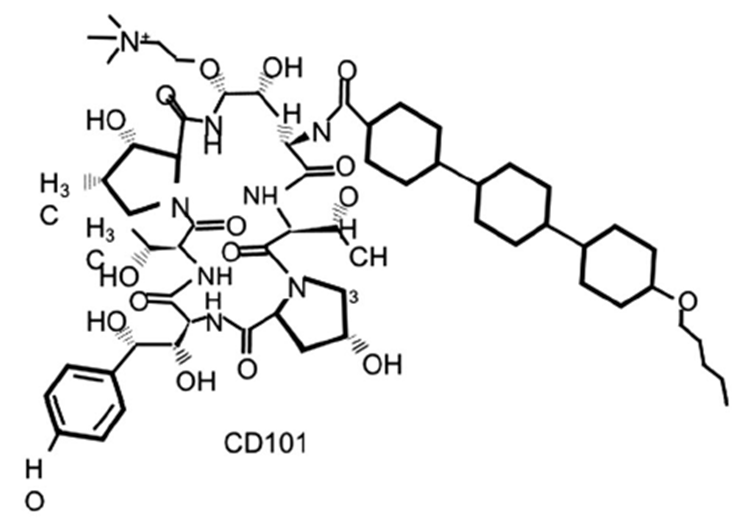Despite increasing rates of invasive fungal infections being reported globally, only a single antifungal drug has been approved during the last decade. Resistance, toxicity, drug interactions and restricted routes of administration remain unresolved issues. This review focuses on new antifungal compounds which are currently in various clinical phases of development. We discuss two azoles with a tetrazole moiety that allows selective activity against the fungal CYP: VT-1161 for Candida infections and VT-1129 for cryptococcal meningoencephalitis. We also discuss two glucan synthesis inhibitors: CD101, an echinocandin with an increased half-life, and SCY-078 with oral bioavailability and increased activity against echinocandin-resistant isolates. Among the polyenes, we discuss MAT023, an encochleated amphotericin B formulation that allows oral administration. Two novel classes of antifungal drugs are also described: glycosylphosphatidylinositol inhibitors, and the leading drug APX001, which disrupt the integrity of the fungal wall; and the orotomides, inhibitors of pyrimidine synthesis with the leading drug F901318. Finally, a chitin synthesis inhibitor and progress on human monoclonal antifungal antibodies are discussed.
CD101 is a novel glucan synthesis inhibitor with and increased half life. By Cidara Therapeutics.
Image: 
Date of article/Start date of trial: 5 October 2017
